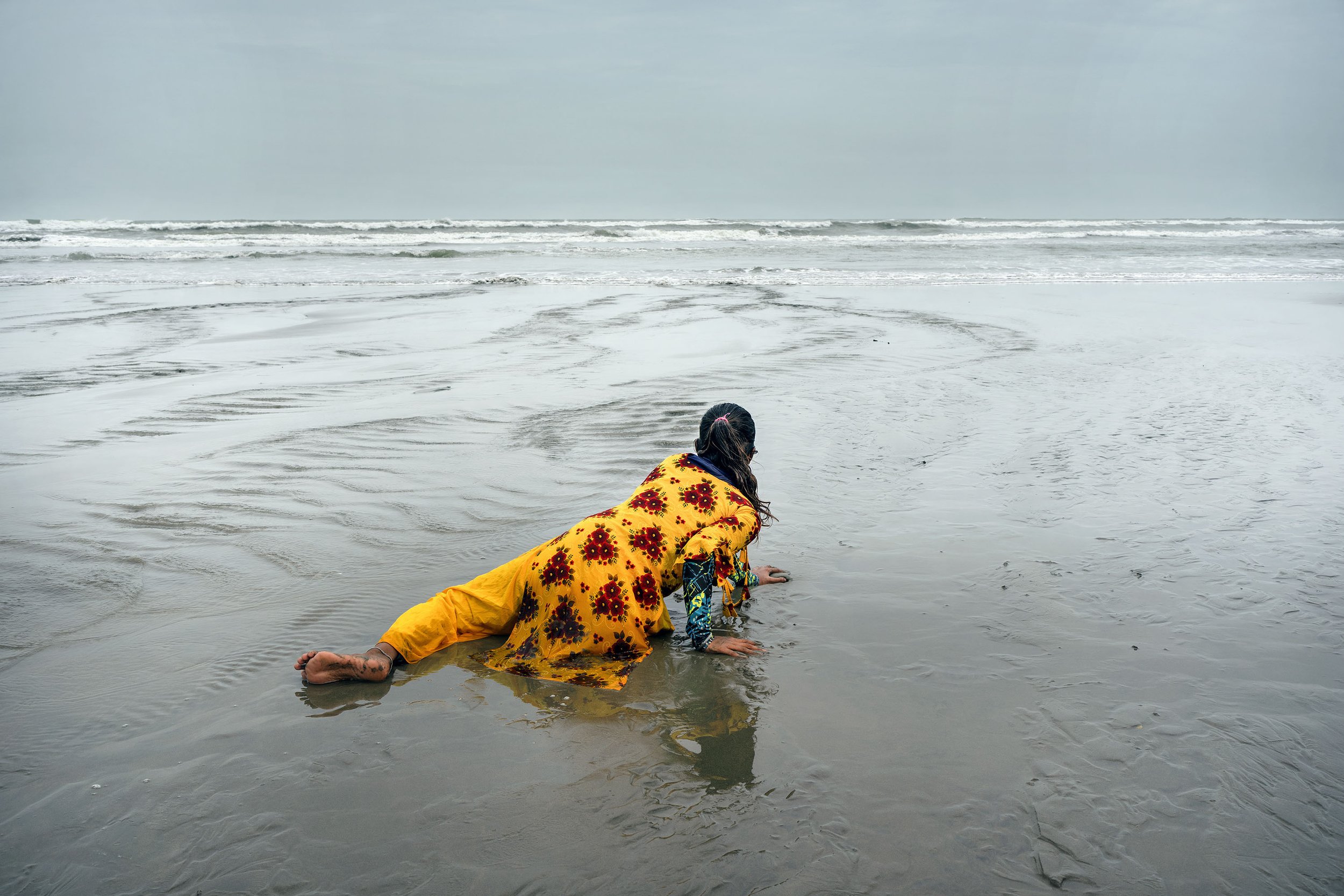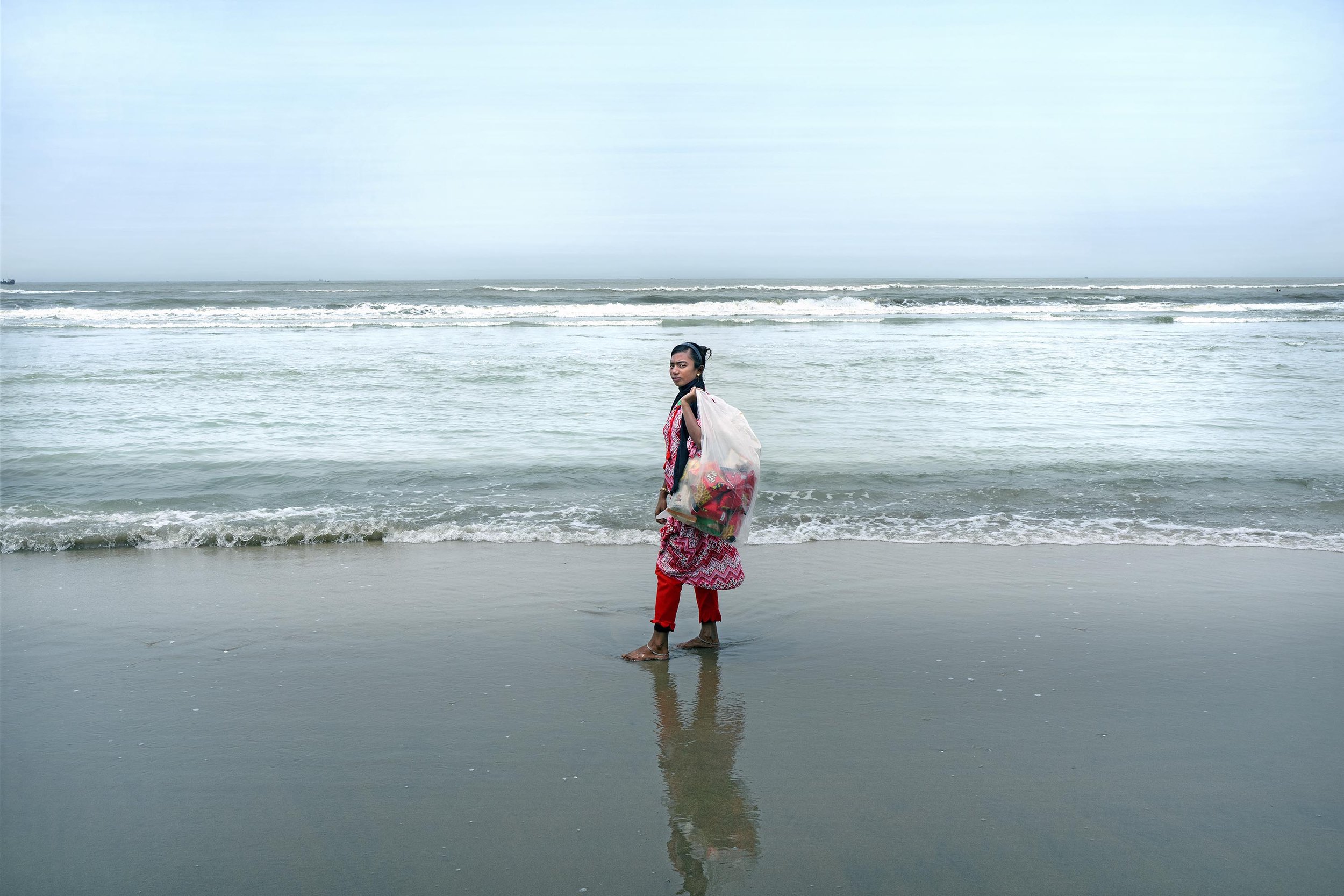The Odyssey of Little Mermaids
In Bangladesh, a country where verdant fields unfurl beneath monsoon skies and the muezzin's call resonates through bustling marketplaces, these girls chart a course that is as audacious as it is inspiring. Education, often hailed as the beacon of progress, remains an elusive quest for many, particularly girls in rural expanses where traditional norms anchor them to age-old roles.
Among these trailblazers is Anzuma Akter, whose twelfth year finds her navigating fifth-grade textbooks on the undulating dance of the Bay of Bengal. "The ocean is my mentor, its tides the lessons that sculpt my will," she says, her voice a testament to the resolve that courses through her. The daughter of a fisherman whose hands have toiled under the relentless sun, Anzuma knows the language of the sea, its bounty once transformed into snail-shell curtains under her deft fingers. Now, the surf is her canvas, and her board is the brush with which she paints her dreams of international acclaim.
Bibi Jahan's tale is no less remarkable. At twelve, she traded the sanctity of school for the uncertainty of the waves, supporting her family's precarious finances with the meager earnings from selling seaside trinkets. Her father's mason hands shape the earth, but Bibi shapes her destiny upon the surf. "The sea is my realm of freedom," she declares, her resolve undeterred by the societal undercurrents that doubt her place among the waves.
Hosne Ara Parvin, with eleven monsoons to her name, embodies defiance, riding the crests as a rebuke to the whispered notion that "Surfing is not for girls." Each wave she conquers is a riposte to the constraints imposed by convention. "Their words are but the wind against my sails," she states, her ambitions surging as powerfully as the tides she tames.
Jesmin Akter, too, finds solace and strength in the surf. With her father's absence echoing like a silent gale, the sea fills her sails, her mother's tireless efforts a guiding star. "The waves are my defiance, and I rise to their challenge," Jesmin voices, her surfboard a vessel of empowerment and her aspirations as boundless as the ocean.
These young surfers, with salt in their hair and hope in their hearts, are rewriting their narratives in a society where the currents of change are often slow, and the waves of tradition run deep. They are pioneers in a land where sports for girls are a burgeoning field, where each victory in the water is a victory for gender equality.
Their odyssey is not solitary; they carry with them the dreams of their families, the aspirations of their communities, and the silent prayers of countless others who see in them the shimmering reflection of what can be. They are the vanguards of a new dawn, their laughter mingling with the roar of the sea, their gaze set on horizons that only they can see.
As the sun dips below the horizon, painting the sky in hues of fire and gold, the mermaids of Cox's Bazar do not simply retreat into the shadows. They leave behind trails in the sand and stories in the wind, harbingers of a tomorrow where their journey from the margins of a beach to the heart of a nation will be told and retold, a saga of resilience, joy, and the boundless spirit of those who dare to dream.
In Bangladesh, these young girls, these warriors of the waves, are not just carving paths on the sea; they are carving paths through history, riding the tides of transformation and emerging as beacons of a future where every girl has the right to education, to sport, and the boundless pursuit of her dreams. With every wave they catch, with every dawn they greet, they reaffirm the promise of the ocean – vast, untamed, and brimming with the potential to nurture, challenge, and change.














